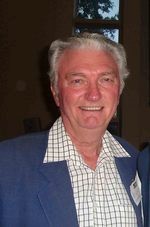Seminar: Are humans the dominant force for change in our atmosphere, seas and land?
The Field Geology Club of South Australia, the Royal Society of South Australia and the Geological Society of Australia (SA Division) jointly present the 2nd Ralph Tate Memorial Lecture by Associate Professor Victor Gostin.
Abstract
Human control of fire, some two million years ago, ushered in a totally new factor in the earth’s natural cycles. A further stage was the extensive development of horticulture and agriculture, followed by rapid increase in population. The burning of fossil fuels, industrialization and the advent of the atomic age have dramatically impacted our planet. Earth scientists now recognise our species as a powerful environmental agent of change – hence the term Anthropocene. However no consensus on its time limits has been achieved and it does not accord with standard stratigraphic practices.

Associate Professor Victor Gostin has been researching, supervising and teaching geology and sedimentology at undergraduate and postgraduate levels since 1970. His scientific interests include the origins and evolution of the solar system and of life, meteorite impacts, earth history, environmental geo-science, and the effects of natural phenomena on the course of human history.
Title: The Anthropocene- Are humans the dominant force for change in our atmosphere, seas and land?
When: 7pm, Thursday August 4, 2016
Where: Mawson Lecture Theatre
There will be drinks and nibbles from 6.15 pm in the Field Geology Club room adjacent to the Mawson Lecture Theatre. Supper will be provided after the lecture.
Abstract
Human control of fire, some two million years ago, ushered in a totally new factor in the earth’s natural cycles. A further stage was the extensive development of horticulture and agriculture, followed by rapid increase in population. The burning of fossil fuels, industrialization and the advent of the atomic age have dramatically impacted our planet. Earth scientists now recognise our species as a powerful environmental agent of change – hence the term Anthropocene. However no consensus on its time limits has been achieved and it does not accord with standard stratigraphic practices.

Associate Professor Victor Gostin has been researching, supervising and teaching geology and sedimentology at undergraduate and postgraduate levels since 1970. His scientific interests include the origins and evolution of the solar system and of life, meteorite impacts, earth history, environmental geo-science, and the effects of natural phenomena on the course of human history.
Title: The Anthropocene- Are humans the dominant force for change in our atmosphere, seas and land?
When: 7pm, Thursday August 4, 2016
Where: Mawson Lecture Theatre
There will be drinks and nibbles from 6.15 pm in the Field Geology Club room adjacent to the Mawson Lecture Theatre. Supper will be provided after the lecture.

Newsletter & social media
Join us for a sensational mix of news, events and research at the Environment Institute. Find out about new initiatives and share with your friends what's happening.
